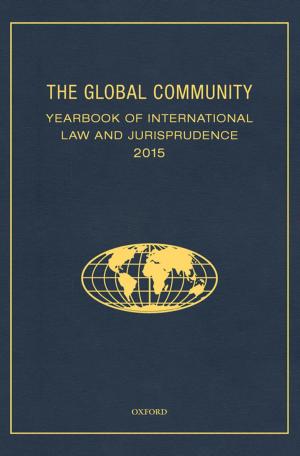The Oxford Handbook of Women, Peace, and Security
Nonfiction, Social & Cultural Studies, Political Science, International, International Security, International Relations| Author: | ISBN: | 9780190638290 | |
| Publisher: | Oxford University Press | Publication: | December 11, 2018 |
| Imprint: | Oxford University Press | Language: | English |
| Author: | |
| ISBN: | 9780190638290 |
| Publisher: | Oxford University Press |
| Publication: | December 11, 2018 |
| Imprint: | Oxford University Press |
| Language: | English |
Passed in 2000, the United Nations Security Council Resolution 1325 and subsequent seven Resolutions make up the Women, Peace, and Security (WPS) agenda. This agenda is a significant international normative and policy framework addressing the gender-specific impacts of conflict on women and girls, including protection against sexual and gender-based violence, promotion of women's participation in peace and security processes, and support for women's roles as peace builders in the prevention of conflict and rebuilding of societies after conflict. Implementation within and across states and international organizations - and within peace and security operations - has been slow despite significant transnational advocacy in support of the WPS agenda. The Oxford Handbook of Women, Peace, and Security brings together scholars, advocates, and policymakers to provide an overview of what we know concerning what works to promote women's participation in peace and security, what works to protect women and girls from sexual and gender-based violence and other human rights violations, and what works to prevent conflict drawing on women's experiences and knowledge of building peace from local to global levels. Just as importantly, it addresses the gaps in knowledge on and the future direction of scholarship on WPS. The handbook particularly aims to build on the findings from the 2015 Global Study of Resolution 1325, commissioned by the UN-Secretary General. Over the course of six sections, the handbook addresses the concepts and early history behind WPS; the theory and practice of WPS; international institutions involved with the WPS agenda; the implementation of WPS in conflict prevention, peace operations, peace building, arms control, human-rights protection, and protection of civilians; connections between WPS and other UN resolutions and agendas; and the ongoing and future challenges of WPS.
Passed in 2000, the United Nations Security Council Resolution 1325 and subsequent seven Resolutions make up the Women, Peace, and Security (WPS) agenda. This agenda is a significant international normative and policy framework addressing the gender-specific impacts of conflict on women and girls, including protection against sexual and gender-based violence, promotion of women's participation in peace and security processes, and support for women's roles as peace builders in the prevention of conflict and rebuilding of societies after conflict. Implementation within and across states and international organizations - and within peace and security operations - has been slow despite significant transnational advocacy in support of the WPS agenda. The Oxford Handbook of Women, Peace, and Security brings together scholars, advocates, and policymakers to provide an overview of what we know concerning what works to promote women's participation in peace and security, what works to protect women and girls from sexual and gender-based violence and other human rights violations, and what works to prevent conflict drawing on women's experiences and knowledge of building peace from local to global levels. Just as importantly, it addresses the gaps in knowledge on and the future direction of scholarship on WPS. The handbook particularly aims to build on the findings from the 2015 Global Study of Resolution 1325, commissioned by the UN-Secretary General. Over the course of six sections, the handbook addresses the concepts and early history behind WPS; the theory and practice of WPS; international institutions involved with the WPS agenda; the implementation of WPS in conflict prevention, peace operations, peace building, arms control, human-rights protection, and protection of civilians; connections between WPS and other UN resolutions and agendas; and the ongoing and future challenges of WPS.















